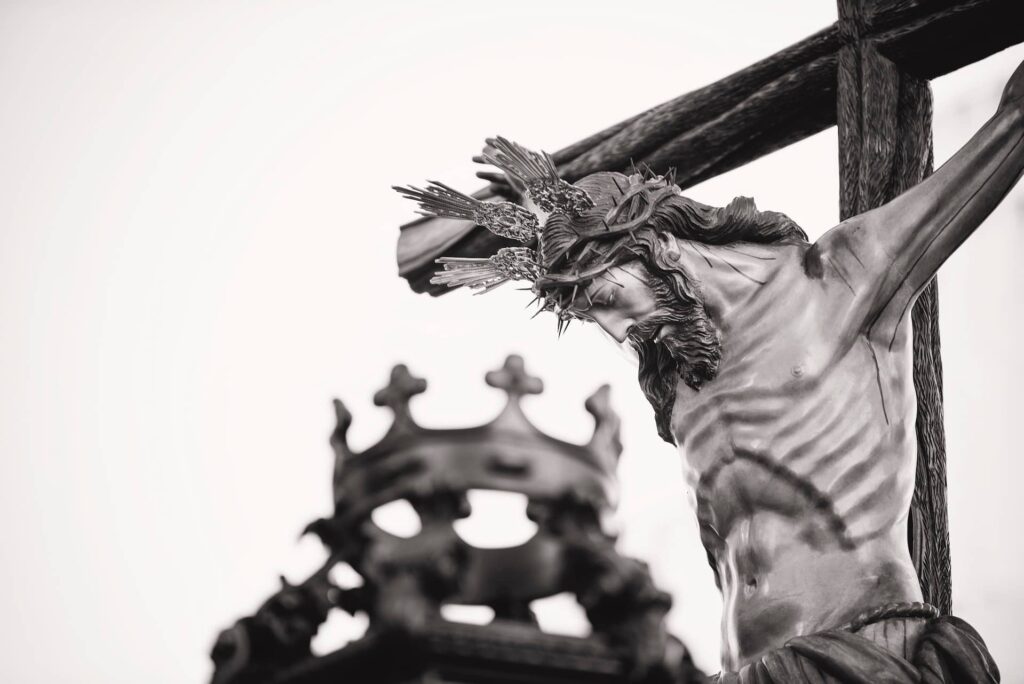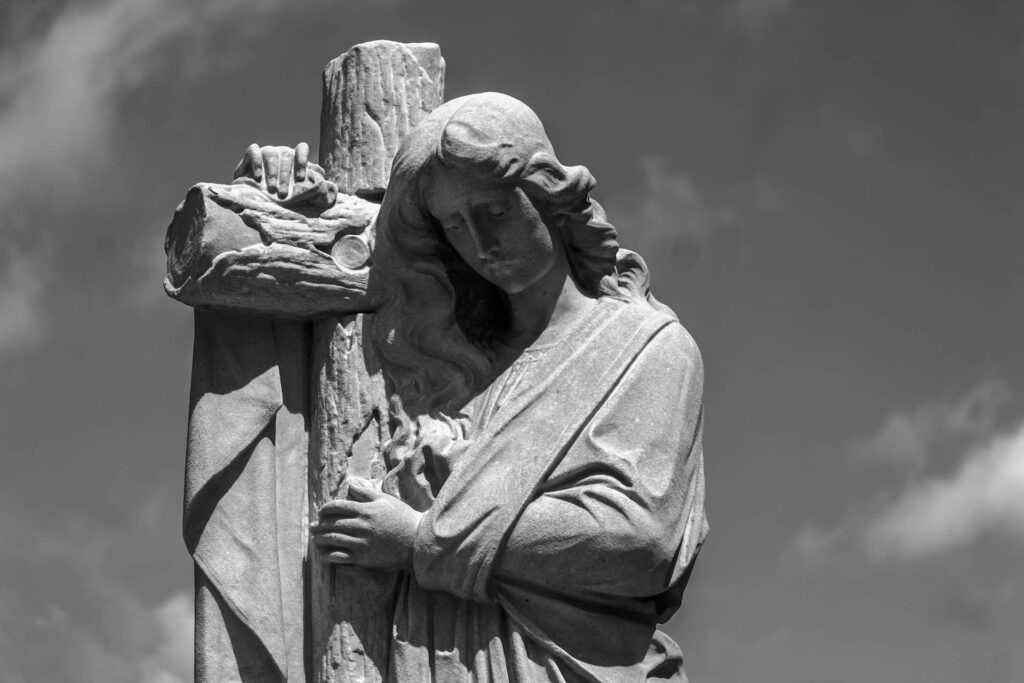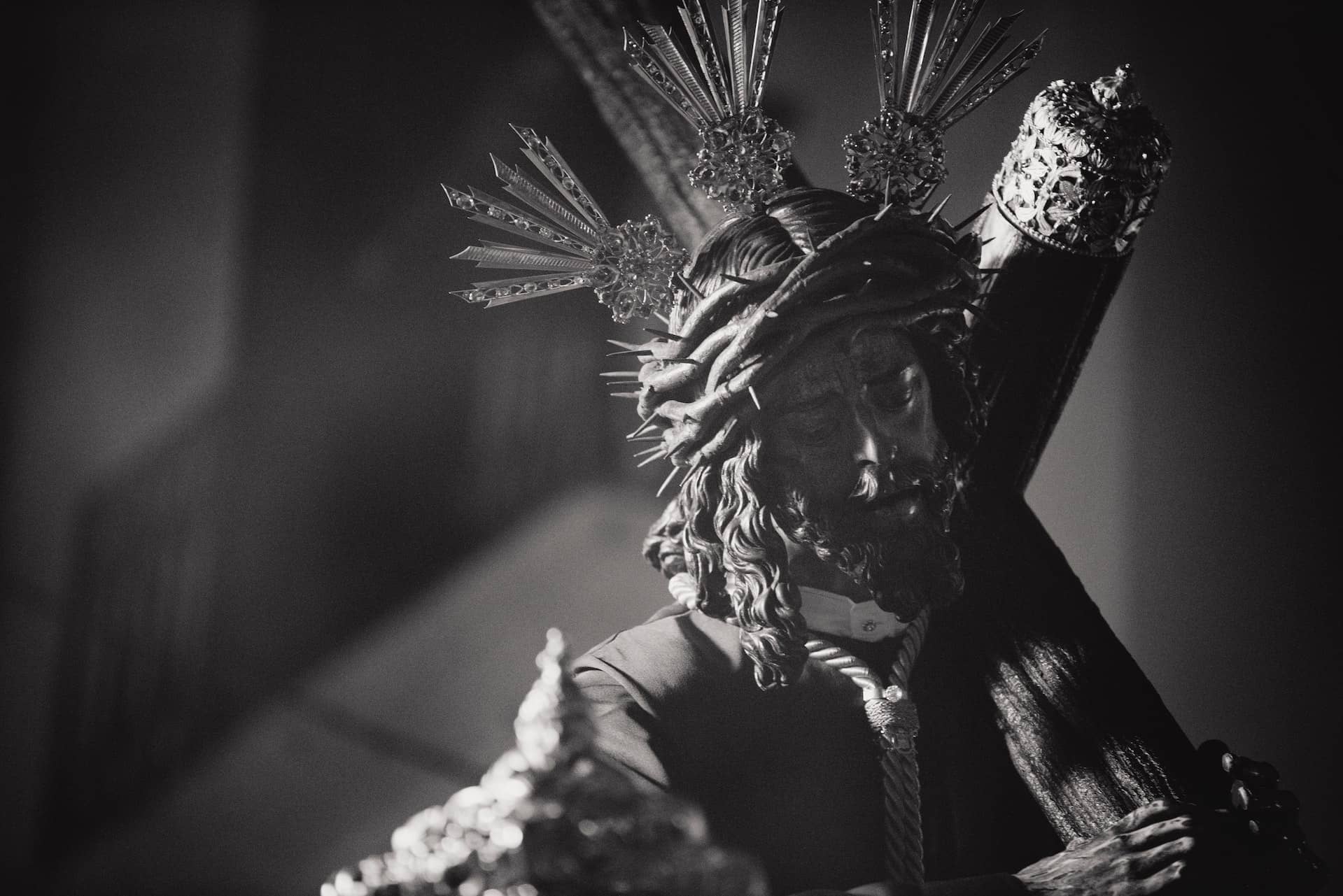Experiences of guilt and shame stand as one of the pervading stereotypes associated with Catholic culture. This shame takes a unique and acute shape for LGBTQ sexuality. These negative emotions and experiences are a consequence of a specific aspect of Catholic thought, what theologians refer to as theological anthropology.
Theological anthropology depicts the contours of Christian discipleship within human lives in relation to God, society and the rest of creation. In making assertions about the human person, this aspect of theology is typically the basis for normative ethical claims. How we talk about our human experiences, including our bodies and emotions, are pivotal for charting a loose Christian trajectory within the complexity of our relationships.
The pervasive theological anthropology disseminating ecclesial life, a series of lectures known as the Theology of the Body, comes mainly from Pope St. John Paul II. But the list of critiques labeled against this particular theology remains long and pronounced.
I need not elaborate on its often facile defense of gender essentialism, its reproduction of millennia-old Aristotelian biology, its buttressing of a limited and questionable reading of natural law, its oft-uninterrogated literalism applied to biblical texts, its erasure of intersex people and its inconsistent application of the “procreative” mandate to heterosexual couples physically incapable of having children. Well-trod territory, no doubt!
Little seems to have been done to illuminate how this understanding of the human person feels, namely how the texts dictate not just prescriptive norms for a human sexual and gendered agent, but also how that agent is obligated to comport to specific emotions, too.
A harmful dimension of this dehumanizing anthropology stems from its literal policing of emotions. Such actions cultivate a form of identity for many queer Catholics built around self-destructive shame for failing to conform to emotional norms in addition to embodied ones. Grappling with the dimensions of shame that many queer Catholics are subjected to remains an important task for spiritual healing and for having healthy, grace-filled relationships.
To help with this healing process, I enlist the assistance of affect theory to diagnose the problem. Affect theory is a theoretical approach examining how emotions weave through different parts of human experience. I turn to this form of academic discourse to help better understand why, in my view, John Paul II’s theological account of the human person often harms queer folks.
A harmful dimension of this dehumanizing anthropology stems from its literal policing of emotions.

Affect theory focuses not just on what we say about bodies and what those bodies should do, but also on how those bodies are obligated to feel. We quickly learn how these prescriptive feelings norms can wreak havoc on one’s sense of self-worth.
One of the notable forerunners of affect theory, Eve Sedgwick, constructed her theoretical contributions on the work of the psychologist Silvan Tomkins. Tomkins examined the development of humans as they attach certain emotions to specific objects and ideas, demarcating how we learn social norms a cultural world.
Consider an example. A toddler learns not to touch a hot stove after getting burned. The child associates a negative affect with that experience, learning of its potential dangers. Within a social world, we learn from others at a young age to hide certain parts of our bodies from others, depending on context and the sex we are assigned at birth. Many learn from a young age that visible and public exposure of parts of our bodies, particularly genitalia, is socially unacceptable.
We are conditioned to feel “shame” in relation to certain actions and ideas, conditioning our behavior and self-understanding. Shame, for Tomkins, seems to be the emotion that helps us learn what to do (or not to do) through a form of punishment, a negative emotion we learn, for transgressing a specific norm.
Sedgwick, reading Tomkins’s work, applies his ideas to texts, noting how teach us to inhabit the world not just as humans, but as feeling humans. Religious texts in particular, including Christian ones, often try to speak to all the multi-faceted complexity of what it means to be human and often dictate the association of specific emotions with actions and ideas.
Donovan Schaefer, a scholar who integrates affect theory to the study of religion through scholarship of both Tomkins and Sedgwick’s work, argues that religions often form “affective ecosystems,” a series of relationships built around emotions, prescriptive norms and structures of power, dictating what type of behavior is bequeathed a feeling of “dignity” within a particular religious context.
I’m traveling down this somewhat opaque theoretical rabbit hole to suggest that the theology of John Paul II cultivates a uniquely harmful affective economy for queer folks.
As many know, John Paul’s account of the human person as a sexual agent relies on assumptions about the human body, specifically that bodies exist as one of two sexually dimorphic variations who “complete” each other in a heterosexual and monogamous marriage purporting to be both “unitive” and “procreative.”
The then-Cardinal Karol Wojtyła wrote more explicitly about the emotional dimensions of his theological anthropology in his book Love and Responsibility.
I go down this somewhat opaque theoretical rabbit hole to suggest that the theology of John Paul II cultivates a uniquely harmful affective economy for queer folks.
In this earlier text, Wojtyła mentions the emotional dimensions of sexual desire, emphasizing that partners are meant to love each other as an integrated whole, as opposed to fixating on certain body parts, such as the chest or legs. Shame emerges when an action or something private is made public. Later in the Theology of the Body lectures, the then-pontiff develops this idea further, citing Original Sin as the source of shame.
A monogamous marriage helps to mitigate this shame through its relationship. A partner must not only love their spouse completely, but must also feel a particular devotion toward them. Failing to conform to this specific relational, emotional and sexual comportment is “missing the mark” of what humanity ought to be doing, thus taking the form of shame.
Shame, within John Paul II’s thought, thus serves multiple functions. It helps to police gender norms through clothing and relational configurations, it serves as a pedagogy for reinforcing certain types of ideal relationships and it renders all other forms of relationships as “shameful.”
Shame has become such a distinguishing feature of lives of many queer folks raised Catholic, whose erotic lives and gender experiences cannot conform to the Theology of the Body.

Shame helps one to learn to love “completely” and in a way that conveniently conforms to the scripts of heterosexual monogamy and the nuclear family so ubiquitous in our age. One is not surprised to learn that within this “affective ecosystem,” to use a phrase from Schaefer, “shame” has become such a distinguishing feature of lives of many queer folks raised Catholic whose erotic lives and gender experiences cannot conform to the Theology of the Body.
To respond to this philosophical, theological, and pastoral problem, I will have to speak from my limited and contextual experience as a white, cisgender gay man. The Velvet Rage: Overcoming the Pain of Growing Up Gay in a Straight Man’s World, a book wildly popular among queer men, elaborates on many of the harmful afterlives of having grown-up with shame stemming from accounts of masculinity reliant on regimes of prescriptive heterosexuality.
The text notes how developing as a young person with different forms of shame and self-contempt often echoes into harmful and self-destructive practices in adulthood, such as irresponsible sexual practices and substance abuse. The work suggests paths for moving beyond such shame through cultivating one’s authentic self.
While the work has resonated with the experiences of many, the book undoubtedly has blind spots, such as taking into how racial identity colors one’s experiences. As Ish Ruiz thoughtfully highlights in two recent posts about Latinx experiences on Outreach, machismo, a culturally distinct stylization of toxic masculinity, remains a constant problem for this community.
The Velvet Rage dwells little on other salient intersectional dynamics, such as body type, ability and neurodivergence. Yet, one solution, finding one’s authentic self through meaningful relationships, offers a potential pastoral resource for many queer men raised Catholic.
Recent works within the sphere of queer theology have charted a more expansive theological imagination beyond the shame imposed in the Theology of the Body. The work of the late Michael Bernard Kelly, for example, in his book Christian Mysticism’s Queer Flame: Spirituality in the Lives of Contemporary Gay Men, studies the spiritual and sexual journeys of eight queer men.
Kelly thoughtfully reads these experiences through the lens of classical mystical texts, carefully delineating how erotic desire can be integrated into one’s entire self to highlight the transformative capacities of God’s love.
The sobering reality is that many queer Catholics, myself included, will be grappling with the afterlives of shame for a very long time.
Queer God de Amor, a new book from the Latinx theologian Miguel Díaz, enacts a similar approach by reading the poetry of St. John of the Cross to cultivate an account of God within queer, erotic and grace-filled encounters. Both the Kelly and Díaz texts are deeply incarnational, in that they embrace embodied and sexual experiences as sites of God’s transformative love, capable of making us more human through others.
The sobering reality is that many queer Catholics, myself included, will be grappling with the afterlives of shame for a very long time. Much work, both institutional and pastoral, must be done to dismantle this dehumanizing theology.
Until then, we must forever proclaim a God who is undoubtedly loving and relational, a God who is incarnated within history and potentially encountered in every relationship, and a God who longs for our full flourishing well beyond any a limited theological imagination forged by shame.



